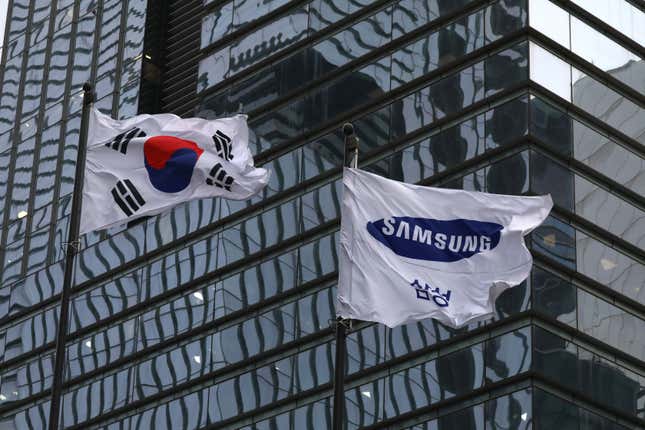
In This Story
South Korea is one of the only economies in the world seeing a productivity boost from artificial intelligence, but U.S.-China tensions over chips could be a challenge to its growth, Bank of America analysts said.
The semiconductor industry accounts for 17% of South Korea’s exports, and the country “has been the largest beneficiary of the AI boom, with exports up over 50%” year-over-year, according to a Bank of America Global Research report. In the long-term, analysts said they think South Korea’s high investment in AI research and development, as well as a growing number of AI-related patents, “will further advance its position in AI adoption.”
However, analysts said “potential geopolitical tensions could weigh on the semis supply chain” — especially the growing tension between the U.S. and China — posing a challenge to AI growth in South Korea. While the country has diversified its chip exports away from China to other parts of the region, China and Hong Kong made up over 30% of its chip exports in 2023, according to the report. Chip exports to the U.S. were around the same.
“Should geopolitical tensions escalate and the US imposes additional trade restrictions on advanced or AI-related chips exports to China, it could significantly undermine the memory semi export in Korea,” Bank of America analysts said.
South Korean chip manufacturers also depend on China for some chipmaking components and equipment. Therefore, if tensions disrupt the supply chain, it would be more difficult for South Korean firms to get the tools needed to produce chips.
The U.S. reportedly has asked South Korea to restrict exports to China of equipment and technology used to make memory chips and advanced logic chips, specifically logic chips more advanced than 14-nanometer, and DRAM memory chips beyond 18-nanometer. South Korean officials were reportedly weighing the U.S. request because of possible repercussions on major South Korean firms, including Samsung and SK Hynix, which operate in China — its largest trading partner.
Meanwhile, the Biden administration reportedly is considering using an export control called the foreign direct product rule on allies that continue selling chipmaking tools and equipment to China. The rule does not allow the export of any good to any country if it is manufactured with a certain percentage of U.S. intellectual property components.